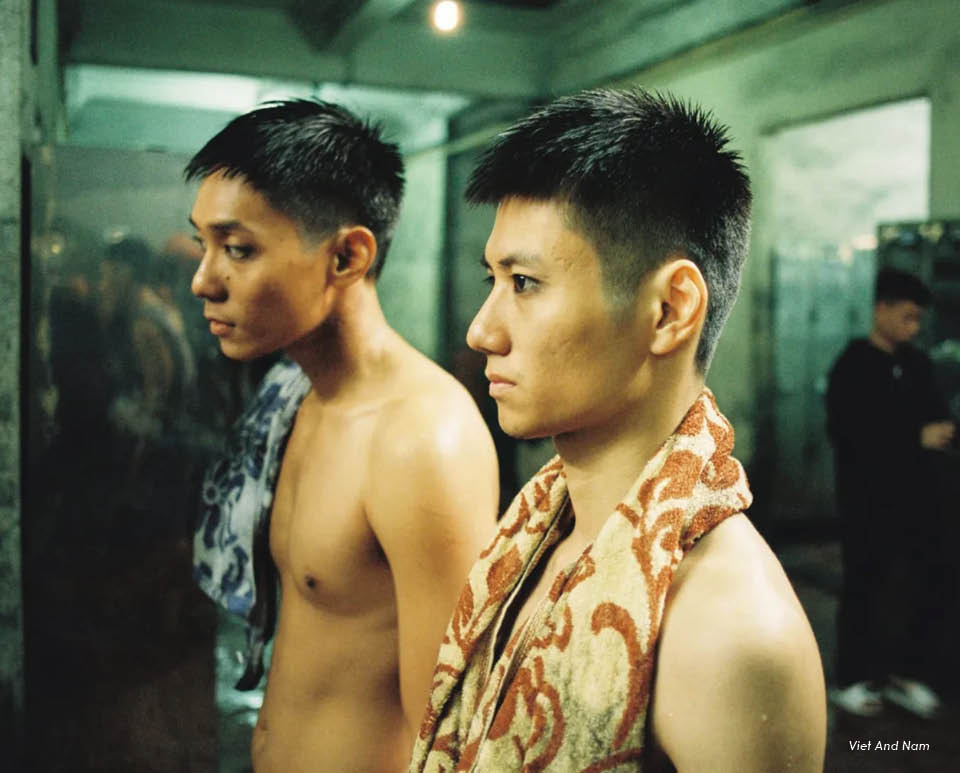
French/Taiwanese producer Vincent Wang sounded a cautious note during this year’s Far East Film Festival (FEFF). Factor in contingencies, Wang advised festival attendees in the northern Italian town of Udine.
Speaking about his experience on "Black Tea", Wang outlined a scenario that ballooned the projected EUR 5 million budget, set in 2019, to EUR 7.2 million by 2023.
The reasons? Many, Wang said.
For one, grant stipulations required cameras to be shipped from Luxembourg to Taiwan and then to the Ivory Coast. “That was a nightmare,” Wang said.
In addition, the month-long shoot in Taiwan was switched from mostly day to night scenes a week before shooting as director Abderrahmane Sissako wanted a moodier atmosphere for the story about an African woman and a Chinese tea master. The art department also constructed sets, such as a market, which were not in the original budget.
The "Black Tea" team persisted – and the film premiered at this year’s Berlinale.
"Black Tea", which tapped regional funding from government agencies such as Taiwan’s Taicca, involved studios from France (Archipel 35, Cinefrance Studios and Wang’s House on Fire), Luxembourg (Red Lion), Mauritania (Dune Vision) and the Ivory Coast (Wassakara Productions).
The second co-production highlighted during the ninth edition of Focus Asia – FEFF’s industry programme designed for filmmakers, distributors and sales agents – was Trương Minh Quý-directed "Viet and Nam", a dreamlike exploration of the relationship between two coal miners who live by the sea.
Backed by eight production houses, "Viet and Nam" was included in this year’s Un Certain Regard lineup at the Cannes Film Festival.
Backing was led by the Philippines (Epicmedia), and included Singapore (E&W Films), France (Deuxième Ligne Films), the Netherlands (An Original Picture), Italy (Volos Films), Germany (Scarlet Visions), the U.S. (Cinema Inutile) and Vietnam (Lagi Limited).
"Viet and Nam" raised almost EUR 940,000/US$1 million. The bulk of the funding came from France, Singapore, and the Philippines.
The producers noted that the presence of European collaborators piqued the attention of Asia backe...
French/Taiwanese producer Vincent Wang sounded a cautious note during this year’s Far East Film Festival (FEFF). Factor in contingencies, Wang advised festival attendees in the northern Italian town of Udine.
Speaking about his experience on "Black Tea", Wang outlined a scenario that ballooned the projected EUR 5 million budget, set in 2019, to EUR 7.2 million by 2023.
The reasons? Many, Wang said.
For one, grant stipulations required cameras to be shipped from Luxembourg to Taiwan and then to the Ivory Coast. “That was a nightmare,” Wang said.
In addition, the month-long shoot in Taiwan was switched from mostly day to night scenes a week before shooting as director Abderrahmane Sissako wanted a moodier atmosphere for the story about an African woman and a Chinese tea master. The art department also constructed sets, such as a market, which were not in the original budget.
The "Black Tea" team persisted – and the film premiered at this year’s Berlinale.
"Black Tea", which tapped regional funding from government agencies such as Taiwan’s Taicca, involved studios from France (Archipel 35, Cinefrance Studios and Wang’s House on Fire), Luxembourg (Red Lion), Mauritania (Dune Vision) and the Ivory Coast (Wassakara Productions).
The second co-production highlighted during the ninth edition of Focus Asia – FEFF’s industry programme designed for filmmakers, distributors and sales agents – was Trương Minh Quý-directed "Viet and Nam", a dreamlike exploration of the relationship between two coal miners who live by the sea.
Backed by eight production houses, "Viet and Nam" was included in this year’s Un Certain Regard lineup at the Cannes Film Festival.
Backing was led by the Philippines (Epicmedia), and included Singapore (E&W Films), France (Deuxième Ligne Films), the Netherlands (An Original Picture), Italy (Volos Films), Germany (Scarlet Visions), the U.S. (Cinema Inutile) and Vietnam (Lagi Limited).
"Viet and Nam" raised almost EUR 940,000/US$1 million. The bulk of the funding came from France, Singapore, and the Philippines.
The producers noted that the presence of European collaborators piqued the attention of Asia backers, but almost 90% of the money raised came from state arts funds or project markets, including Rotterdam’s Hubert Bals Fund and Manila’s Film Development Council of the Philippines.
The film endured cultural differences between what producers described as the easygoing nature of Asians and the need for consistency from Europeans.
“The clash between the fluidity and rigidity wasn’t negative or positive, but it was the biggest complication we felt,” said Epicmedia’s Bradley Liew, speaking via Zoom as he prepped his film for Cannes. Epicmedia’s Bianca Balbuena, Volos Films’ Stefano Centini and Scarlet Visions’ Christian Jikil joined in person.
The 11 projects selected from 100 submissions from 25 countries for FEFF/Focus Asia’s All Genres Project Market 2024 ranged from drama, coming of age and art-house to surreal, fantasy and thriller from Vietnam, Thailand, Japan, Indonesia, Malaysia and the Philippines. The All Genres section is for projects with an Asian and European co-production potential.
The six films in the Far East in Progress section, dedicated to Asian films in post-production seeking international distribution and festival premieres, included "Sunshine", directed by Antoinette Jadaone and produced by Geo Lomuntad, Project 8 Projects (Philippines).
– by Alyssandra Maxine
▶ Published in ContentAsia's 3-17 June 2024 eNewsletter



















